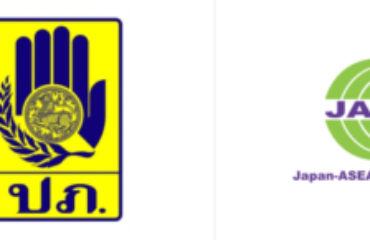
BUILDING RESILIENCE
OF WOMEN AND OTHER VULNERABLE GROUPS THROUGH CAPACITY BUILDING
Background of the Project
The project ‘Improving ASEAN’s Humanitarian Assistance Capacity in Multi Hazard’ – funded by the Government of Canada (Global Affairs’ Canada) – launched in April 2022, will run for five years, from 2022 – 2027.
One of the guiding principles of the ASEAN Agreement on Disaster Management and Emergency Response (AADMER) Work Programme 2021 – 2025 is on Gender and Inclusion. This principle inculcates a whole-of-society approach in disaster management that leaves no one behind by recognizing the key roles and unique needs of the communities, especially those that are most affected during disasters, including women and other vulnerable groups. As one of the implementors of the AADMER Work Programme 2021 – 2025, the AHA Centre proposed this project to further expand the capacity of ASEAN Member States and Local Partners through a multi-sectoral approach to systematically integrate such gender and protection considerations into disaster management.
Through this project, the AHA Centre supports ASEAN Member States and Local Partners to recognize and set the priorities for indicators and targets related to protection, gender, and inclusiveness (PGI). This project believes that building resilience of women, and other vulnerable groups within the national and regional resilience will help in addressing and mitigating socio-economic impact of the disasters.
The Project adopts the AADMER Work Programme 2021-2025 and formulized the ASEAN Regional Framework on Protection, Gender, and Inclusion in the ASEAN Region. Subsequently, a new AADMER Technical Working Group on Protection, Gender, and Inclusion (TWG-PGI) was established in 2021 to support the mainstreaming of the gender and social inclusion guiding principles throughout the disaster management efforts in the region.
Main Components of the Project
The Project has three main components, among others, (i) Enhanced Regional Coordination Mechanism to respond to multiple types of disasters, which integrates PGI, Climate Change Adaptation and Environmental Sustainability measures; (ii) Improved Knowledge of ASEAN responders in addressing the needs and interests of vulnerable groups during emergency periods; and (iii) Improved disaster management and emergency response practices in ASEAN Member States.
Upcoming activities of 2023
As of February 2023,
the Canada Project had its first series of activities—Exchange Forum on ASEAN’s Practices on Data Disaggregation in Disaster Management: A Way Towards Protection, Gender, and Inclusiveness (PGI), and the 1st Project Steering Committee (PSC) Meeting of the Project, which were held in Da Nang, Viet Nam on 22-24 February 2023. The PGI Exchange Forum is designed to help participants exchange knowledge on PGI experiences, which will be a key principle for the achievement of this project. The PGI Exchange Forum and the 1st PSC Meeting were held back-to-back with the 5th Meeting of the Technical Working Group on Protection, Gender and Inclusion (TWG-PGI), and 5th Meeting of the ASEAN Committee on Disaster Management Working Group on Prevention and Mitigation (ACDM WG P&M).
Starting Quarter 2 of 2023 (April – June),
the project aims to conduct Consultation and Desk Review on expanding the existing New Risk Scenario. This activity falls under the outcome of “Enhancing Regional Coordination Mechanism to respond to multiple types of disaster which integrates PGI, Climate Change Adaptation and Sustainability measures”. Within this activity, the project aims to develop a new Disaster Risk Scenario Study, adding to the three existing scenarios in the ASEAN Joint Disaster Response Plan (AJDRP). The new Disaster Risk Scenario will focus on Transboundary Flood within the Mekong sub-region. Additionally, the scenario will integrate PGI, Climate Change Adaptation and Environmental Sustainability as part of the Project’s key thematic areas.
In Quarter 3 of 2023 (July – August),
the project intends to organize consultation workshops to validate the New Risk Scenario. Within the same quarter, the project further aims to conduct Capacity Building on PGI, focusing on the exchange of experiences among ASEAN Member States through cross-learning.
In the last Quarter 4 of 2024 (October – December),
the project aims to deploy experts from the Member States to other Member States as part of Capacity Development Support.
Canada’s Support
The Project Management Team has been recruited in Jakarta, Indonesia, and have begun their work alongside the Disaster Monitoring & Analysis Team (DMA) in the AHA Centre. The Team is currently made up of a Project Officer and Project Assistant, who will implement the project’s activities and strategy with support from the Government of Canada and experts from the AHA Centre’s partners, including UNWOMEN, LACER, and SDC.
This forms an exciting journey for the AHA Centre and the ASEAN Member States to ensure this initiative further contributes to the envisions of AADMER Work Programme 2021-2025. The AHA Centre, through the Canada-funded project, looks forward to working closely with the Government of Canada, NDMOs, ASEAN Member States, The ASEAN Secretariat, and AHA Centre partners, to integrate PGI, CCA, and ES into the efforts of increasing capacity, enhancing standby arrangement with new disaster scenario, and further increasing collaboration and partnership will increase resiliency of multiple types of disasters within AMS and Local Partners.
Written by: Pwint Mon Swe, Htet Wai Zin, Lawrence Anthony Dimailig




